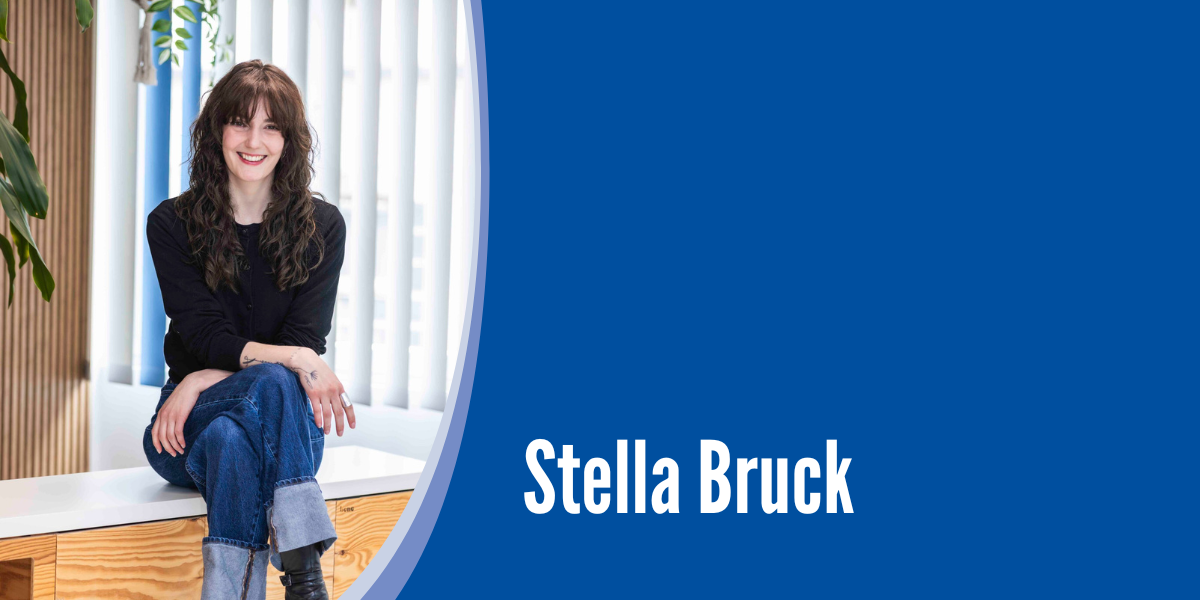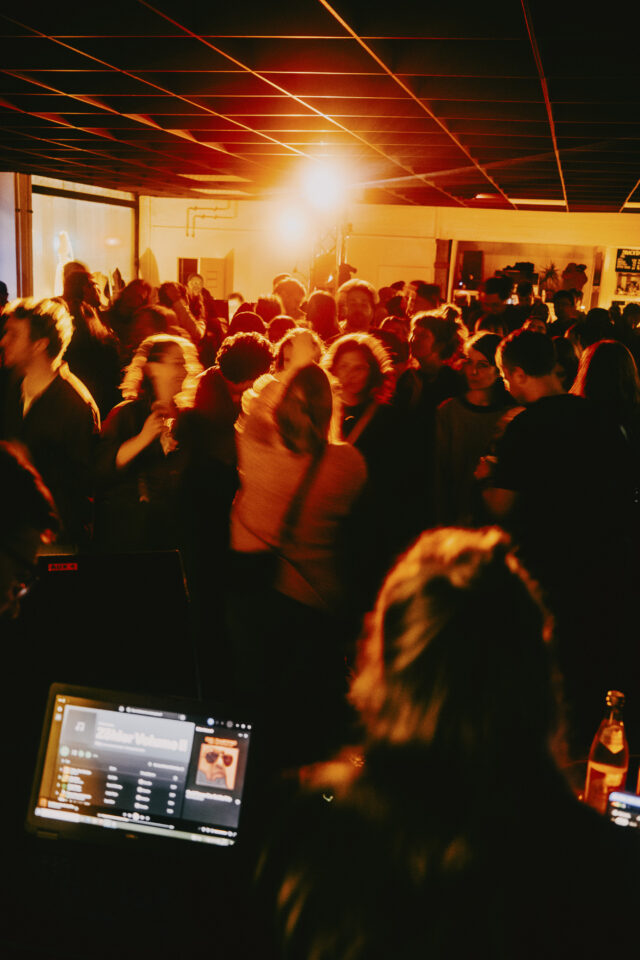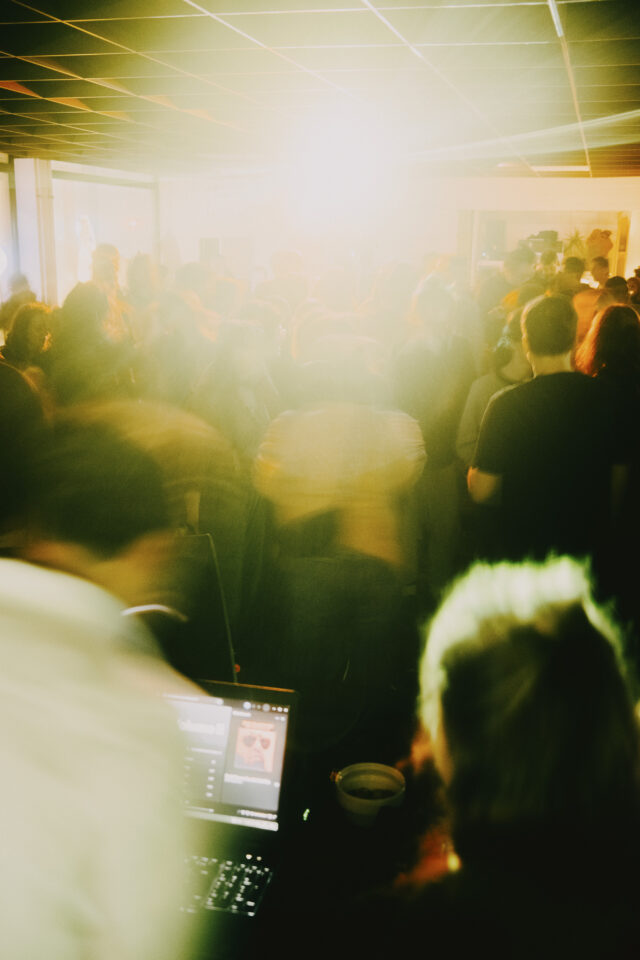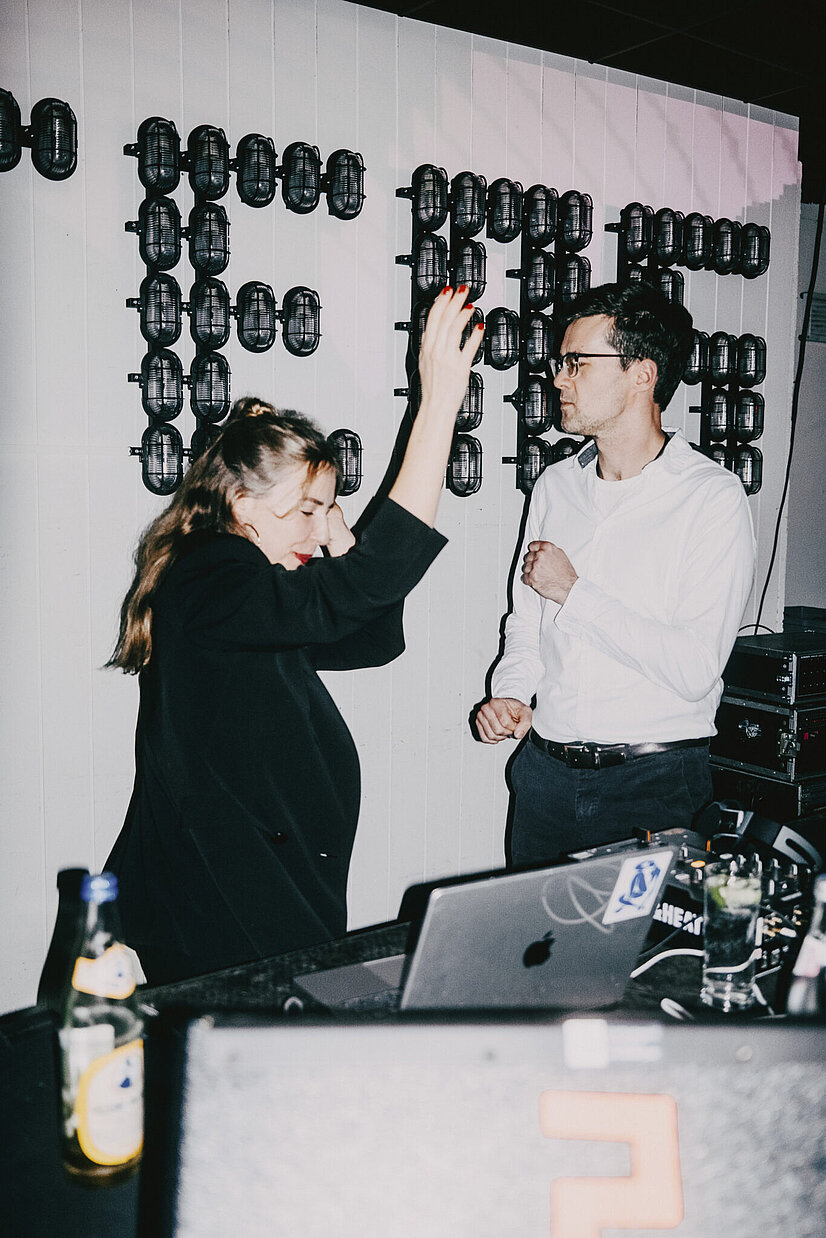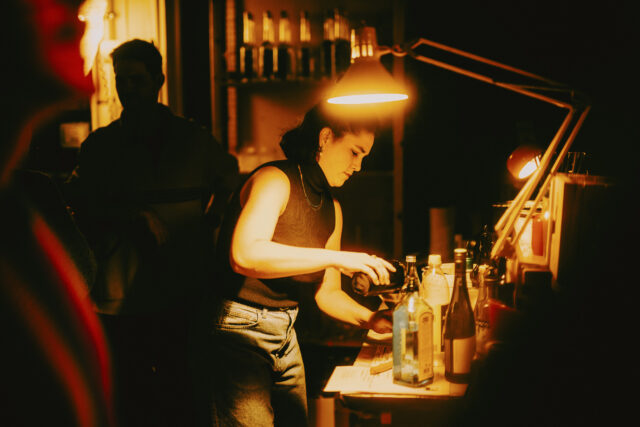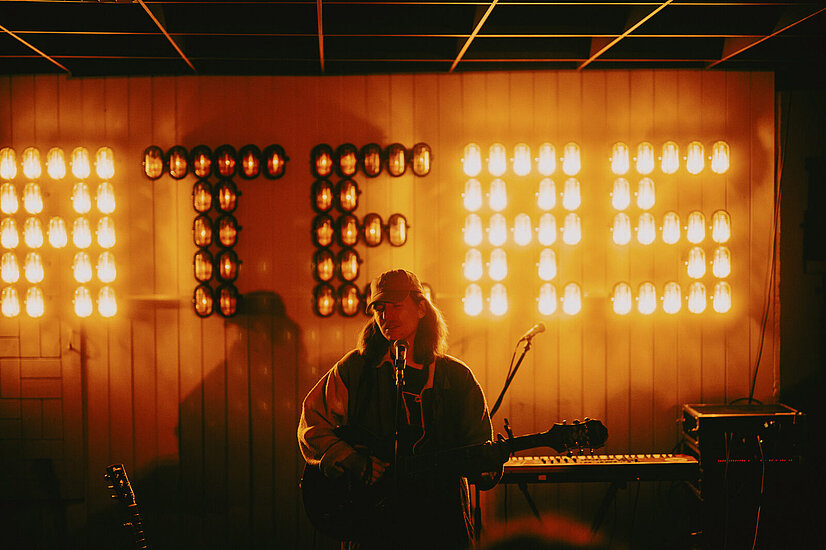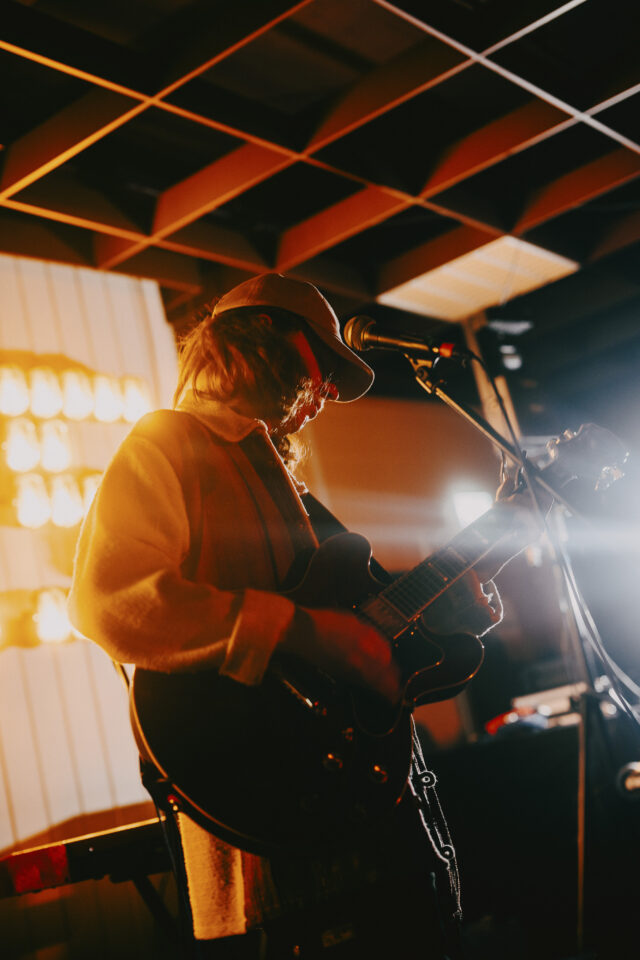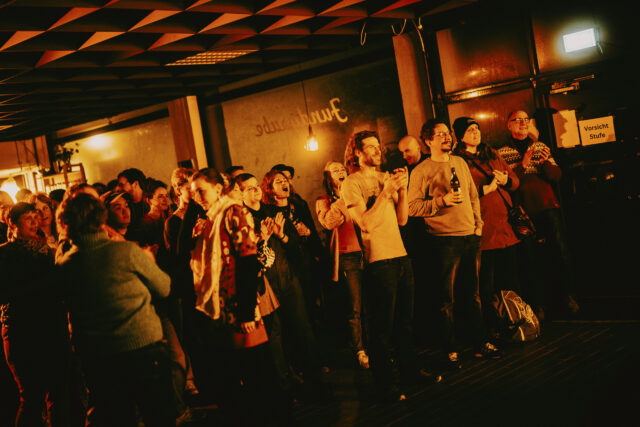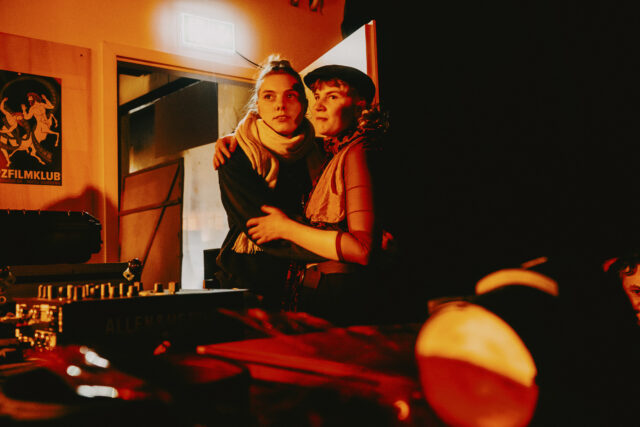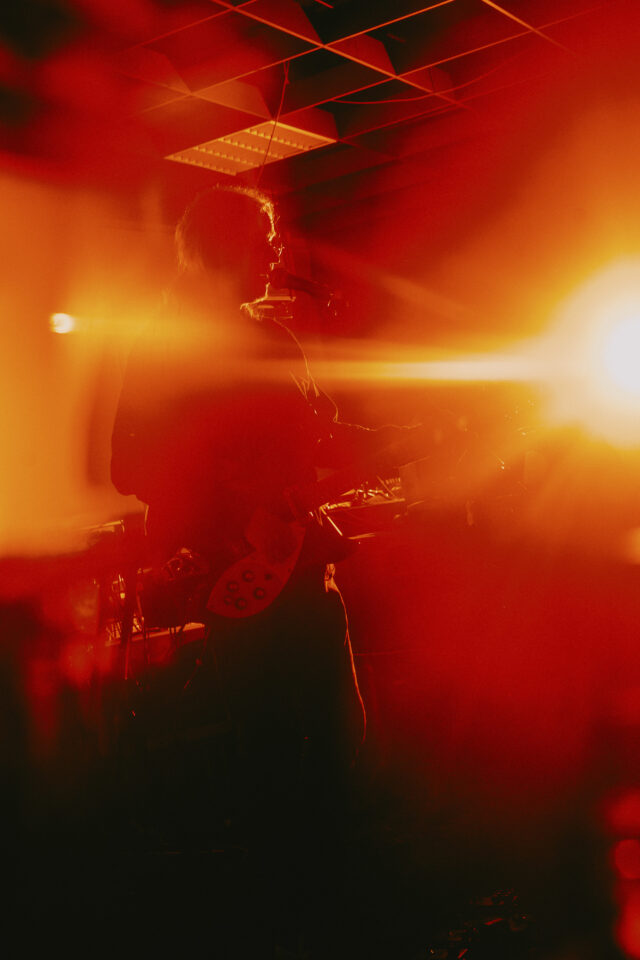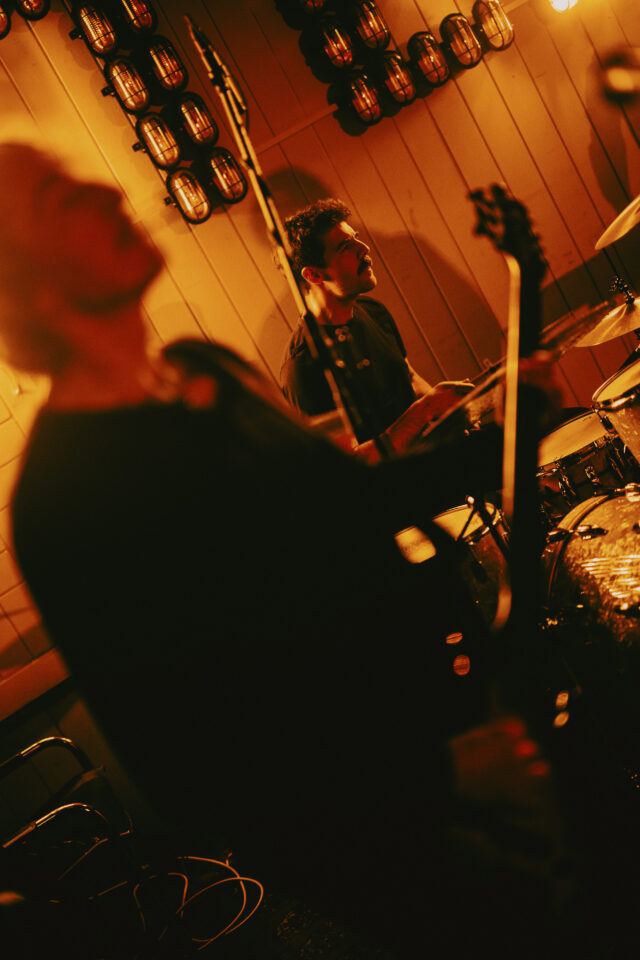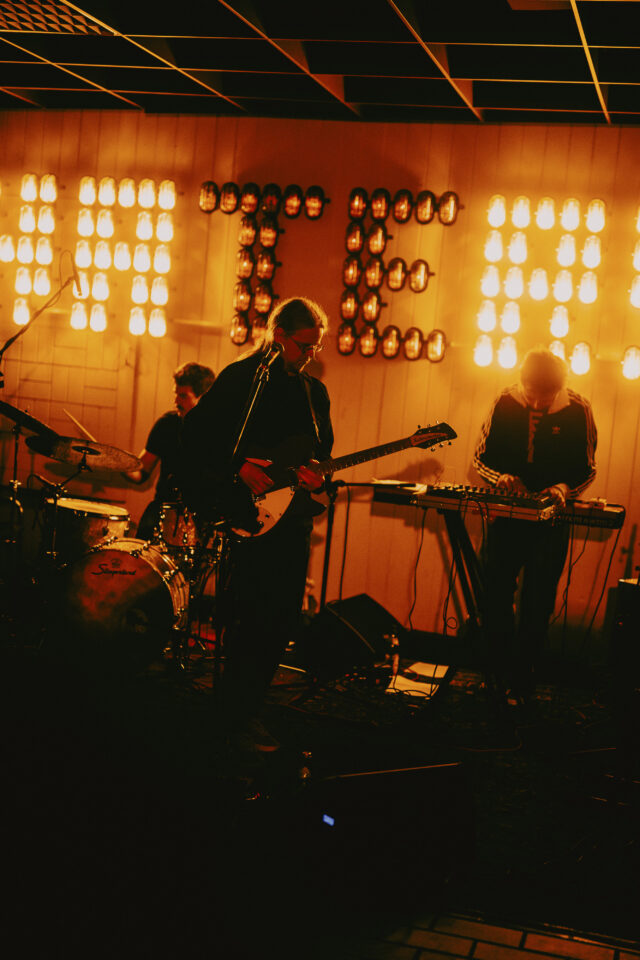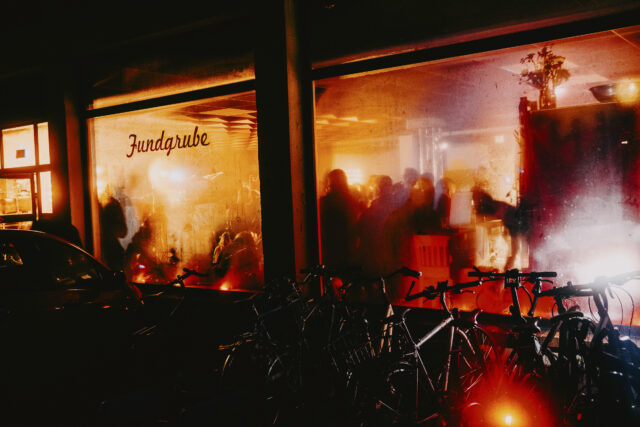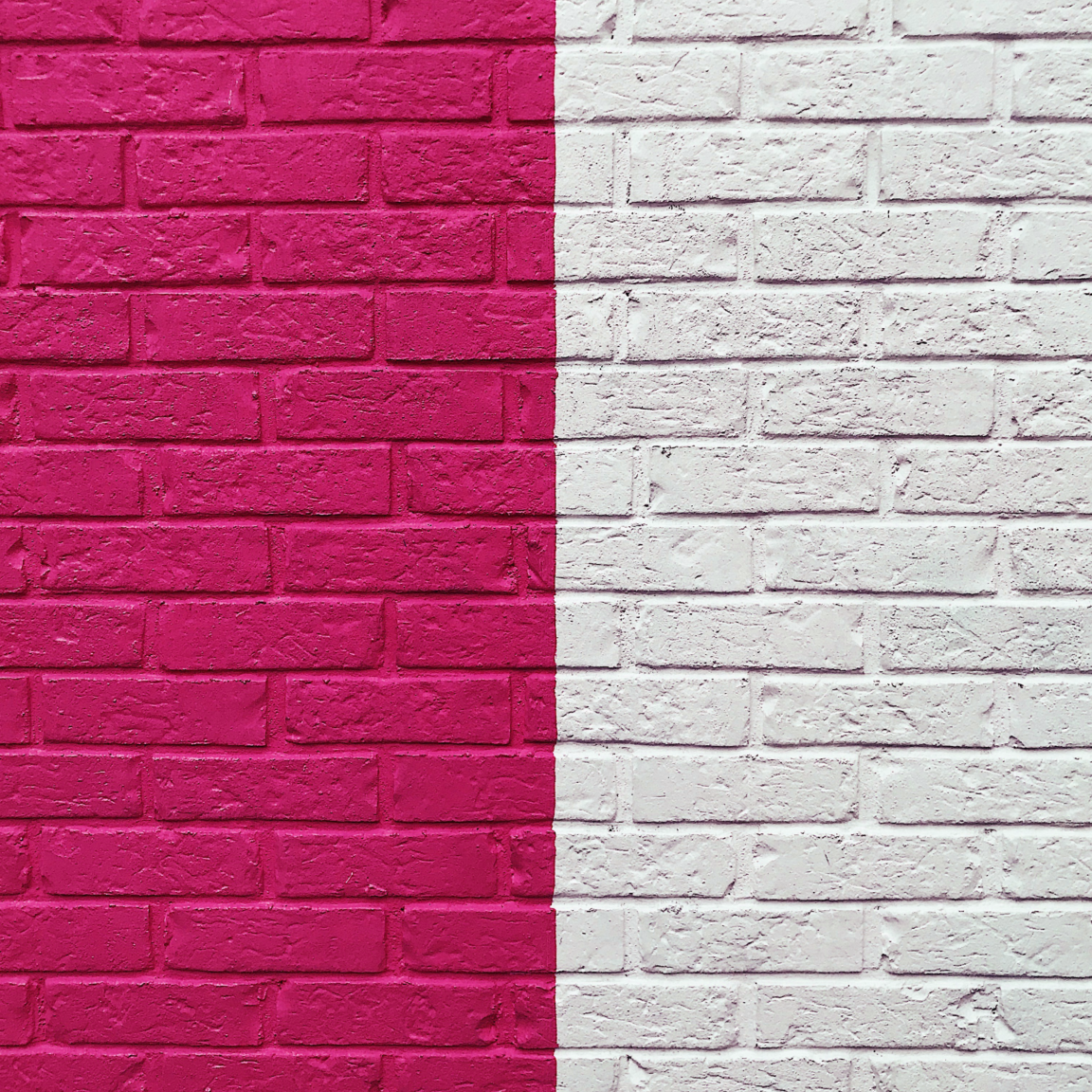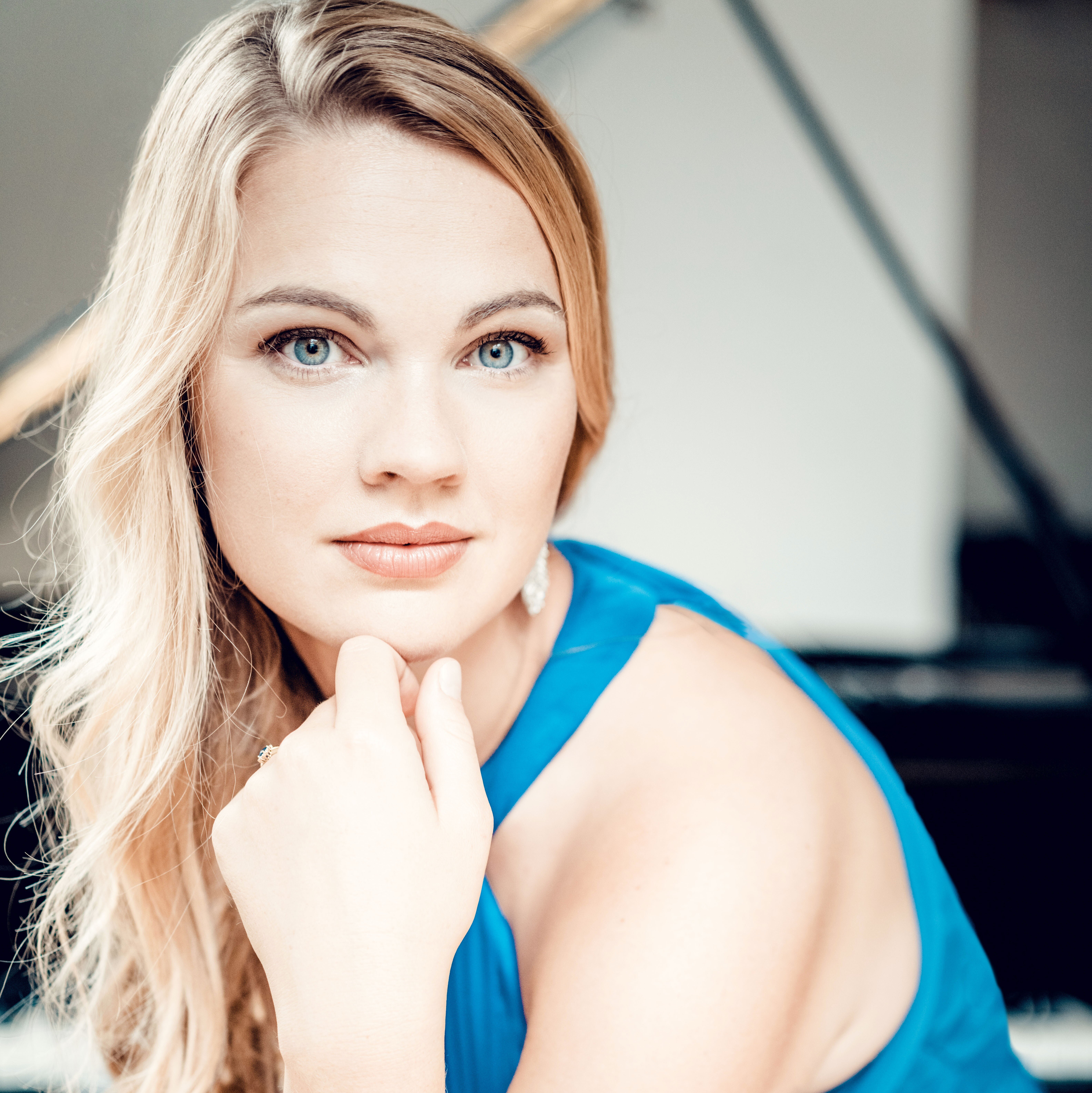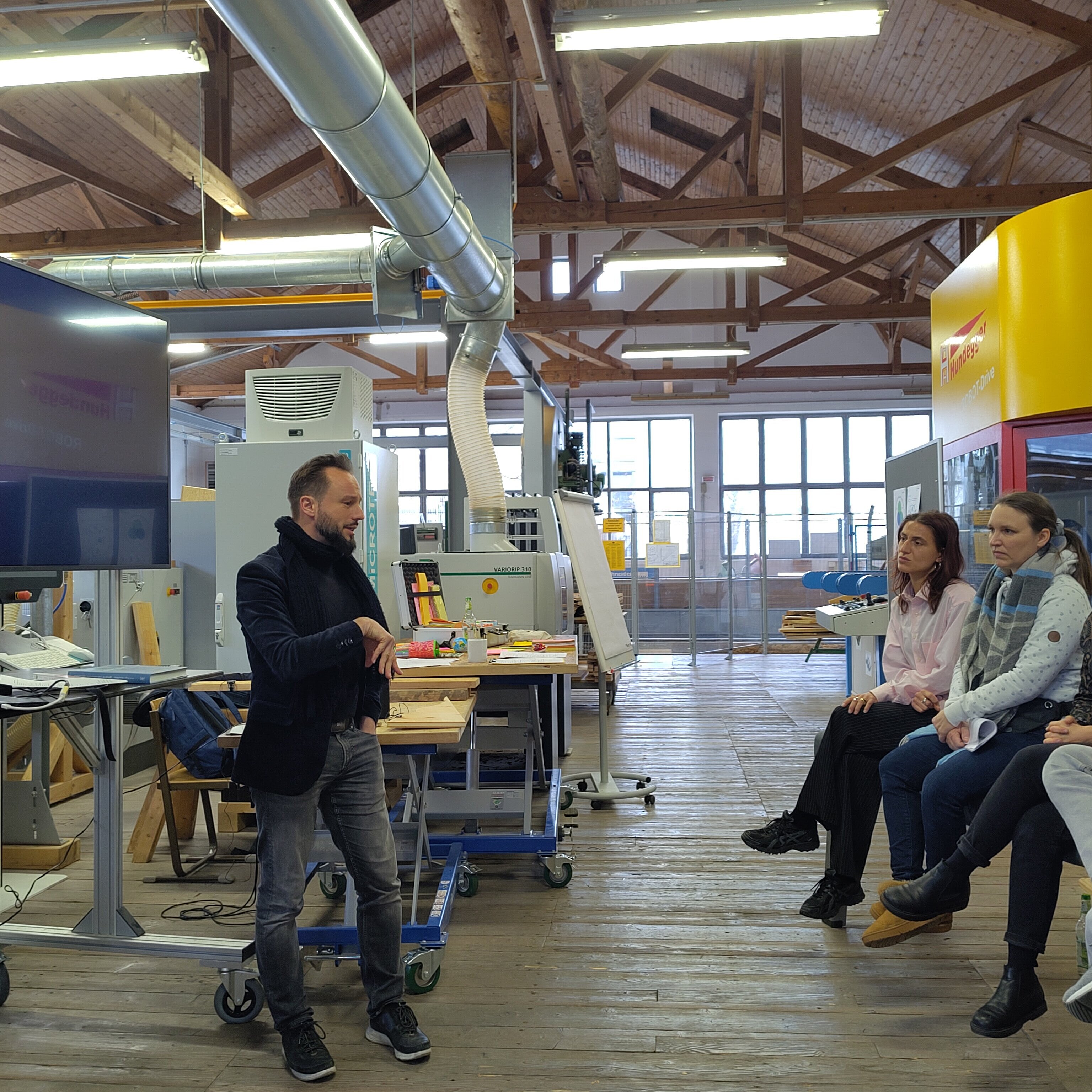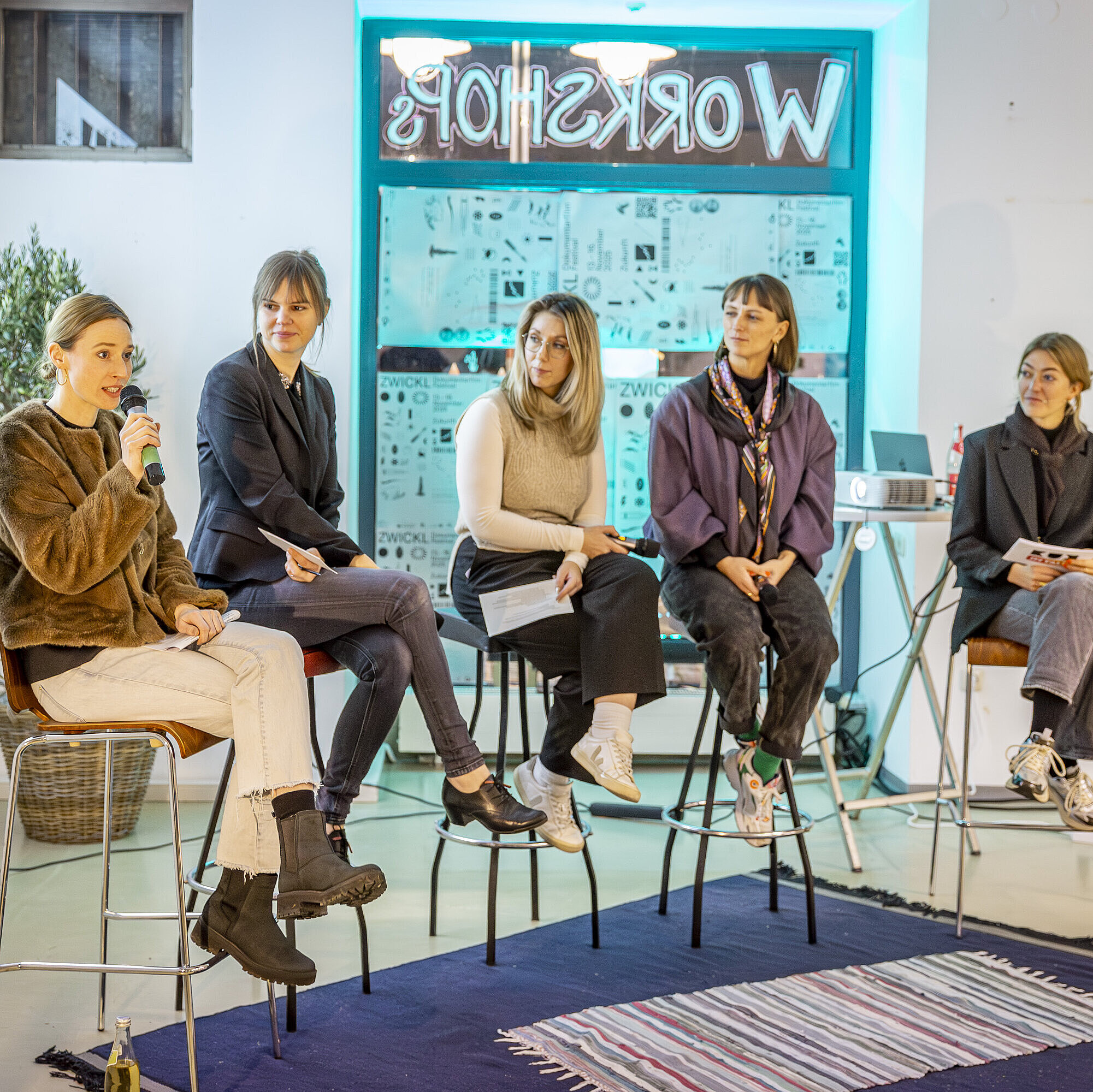"It was important to us to create a place where people with and without a cultural background can come together as equals." With Studio Zinnober in Bamberg, Stella Bruck has created a cultural and creative space that aims to be more than just a stage: a lively meeting place that promotes social diversity and makes culture accessible to everyone. She uses her bayernkreativ place in the "KREATIV Garage" start-up program of OM7 Nuremberg to reflect on how to create stable structures without losing her attitude, in exchange with other projects and with professional sparring. In this interview, she talks about her motivation, social responsibility and the vision of rethinking culture in a new and inclusive way.
Cultural designer & networker
Stella Bruck is at home in the independent and institutional cultural landscape. She is currently working as a student trainee at the Bamberg Cultural Office and is studying sociology with a focus on communication and the digital public sphere. She has worked at the Berliner Festspiele (Theatertreffen), Rocket Beans Entertainment and the Thalia Theater Hamburg, where she was also part of the steering committee "360 Grad - Fonds für kulturelle Vielfalt". Her voluntary work focuses on combining art, activism and society: for example at DIE VIELEN e.V., the Bamberg Short Film Festival or as part of district-based networking. She is particularly interested in new alliances between culture, civil society and digital spaces.
"We want to create a space that not only has a program, but also an attitude: curious, open, contradictory, connecting."
Stella Bruck
Dear Stella, you founded Studio Zinnober. What motivated you personally to establish this cultural and creative space in Bamberg?
Studio Zinnober was born out of a gap. We were missing a place that not only showed culture, but also made it shareable. I worked in cultural contexts for many years, often with social aspirations, but ultimately always with a similar audience. With Studio Zinnober, we want to create a space that not only offers a program, but also lives an attitude: curious, open, contradictory, connecting. A place where people with and without a cultural background can meet at eye level. Without pressure to consume, but with a desire for exchange.
What significance does the social responsibility of a cultural project have for you? What role does sustainability play in the business model?
For us, social responsibility is not an add-on, but the core. Culture should not depend on whether you can afford tickets or understand codes. That's why we specifically target people who are often excluded: migrant workers, single parents, solo self-employed people, people outside the traditional high culture audience. For us, sustainability means taking participation seriously and at the same time working in an economically viable way. We rely on a mixture of funding, voluntary work and catering revenue and on regional partnerships that strengthen social and economic cycles.
What makes Studio Zinnober special as a cultural venue, and what programs take place there?
Studio Zinnober is not just a place for culture consumers, but for everyone.
We combine everyday life with artistic relevance through formats such as mini-playback shows, discourse evenings, pen & paper nights, film series, dance evenings or culinary-cultural encounters. What makes us special is that we focus on social debates and translate them into formats that are low-threshold, surprising and connecting.
How do you envision Studio Zinnober in five to ten years' time? What formats or collaborations would you like to develop?
In five years' time, I would like Studio Zinnober to be a natural part of urban life. Like a youth center for adults: open, lively, reliable.
I see collaborations with schools, migrant communities, independent collectives from all over Germany. New formats such as multilingual event series, intersectional festivals or bar evenings with personal stories. And I hope that this place not only grows, but becomes deeper. With more responsibility and the courage to remain uncomfortable.
What milestones do you really want to achieve?
- Finding a long-term solution for the location. So far, we have been working in the pop-up model in empty spaces, which is creatively inspiring but structurally stressful. The repeated creation of new infrastructure eats up a lot of resources. This model cannot be sustained on a voluntary basis in the long term.
- Establishing a curated open-stage format that regularly makes new voices visible.
- Building a sustainable staff structure that enables fair, paid work instead of relying on self-exploitation and idealism.
What do you think are the biggest challenges and what support do you need?
The biggest hurdle is structural invisibility and the lack of financial support. Projects like Zinnober are often perceived as a nice interim use, although they fill systemically important gaps. We need political and social backing, resilient funding partnerships and access to long-term infrastructure. And we would also like to see a willingness to support experiments, even if their impact is not immediately quantifiable.
How can cultural and creative professionals get involved in Studio Zinnober?
We work in a participatory way: artists, groups and associations can propose their own formats, from concerts and discourse events to performative formats.
Studio Zinnober is open, but not arbitrary: we curate with attitude, but not single-handedly.
What do you expect from the founding program KREATIV Garage of OM7 Nuremberg? What aspects are particularly valuable to you?
The KREATIV Garage is a space of opportunity for us. We are not a classic start-up, but we want to build structures that last.
Particularly valuable for us are
- Reflection and sparring on the question: How do you create structures without losing attitude?
- Exchange with other projects that are at similar points
- Access to networks beyond our own scene
And very specifically: advice on legal form, personnel structure and funding strategy, so that Studio Zinnober is not just a successful start, but a resilient model for living culture.
The Bavarian cultural and creative industries are vital, cooperative, polyphonic and relevant to the future. We introduce you to Bavarian players. What is their business model? What drives them?
Would you also like to answer a few questions and be part of our "bayernkreativPORTRAIT" campaign? Then send us an email to kontakt@bayern-kreativ.de with the keyword "bayernkreativPORTRAIT".
